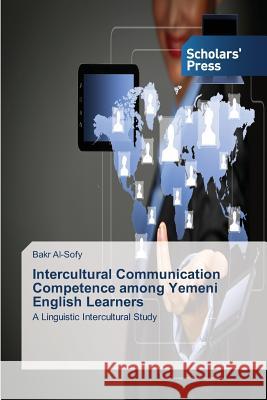Intercultural Communication Competence among Yemeni English Learners » książka
Intercultural Communication Competence among Yemeni English Learners
ISBN-13: 9783639710670 / Angielski / Miękka / 2014 / 560 str.
Intercultural Communication Competence (ICC) is a global necessity for communicating efficiently with others. This study is based on three objectives: (a) to investigate the level of ICC among Yemeni undergraduate English language learners (YUELLs); (b) to identify the factors that possibly affect their ICC levels; and (c) to highlight the most effective ways to improve their levels of ICC. The mixed methods approach was adopted in which the questionnaire and email interviewing were used to gather the data concurrently. The findings show that YUELLs generally have a moderate level of ICC due to many factors: the native culture which highly determines peoples' perceptions and behaviors. In addition, "attitudes towards learning English" is another best predictor of ICC. Also, many attainable ways that help learners to improve their levels of ICC are raised. This book presents significant recommendations, values and results which contribute to the development of future researches, decision-making, and syllabus in higher educational institutions by putting these results into practice so as to better prepare learners to communicate successfully in different intercultural environments.
Intercultural Communication Competence (ICC) is a global necessity for communicating efficiently with others. This study is based on three objectives: (a) to investigate the level of ICC among Yemeni undergraduate English language learners (YUELLs); (b) to identify the factors that possibly affect their ICC levels; and (c) to highlight the most effective ways to improve their levels of ICC. The mixed methods approach was adopted in which the questionnaire and email interviewing were used to gather the data concurrently. The findings show that YUELLs generally have a moderate level of ICC due to many factors: the native culture which highly determines peoples perceptions and behaviors. In addition, "attitudes towards learning English" is another best predictor of ICC. Also, many attainable ways that help learners to improve their levels of ICC are raised. This book presents significant recommendations, values and results which contribute to the development of future researches, decision-making, and syllabus in higher educational institutions by putting these results into practice so as to better prepare learners to communicate successfully in different intercultural environments.











